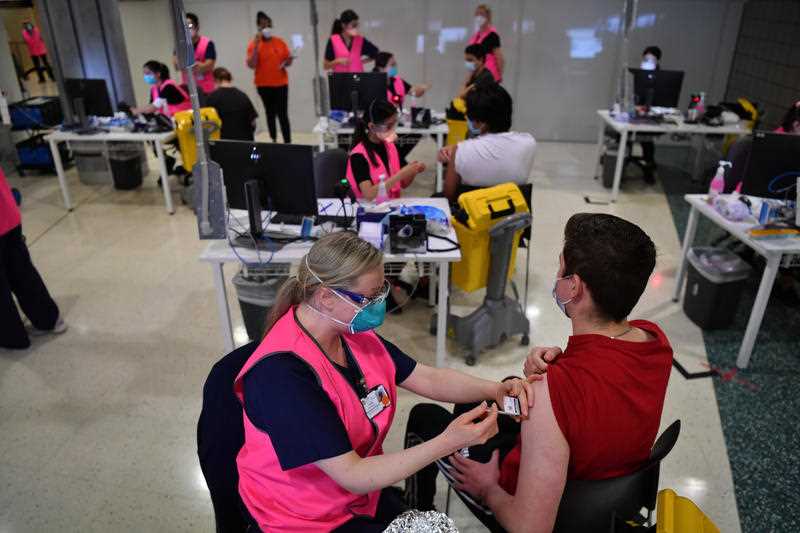Strict mask mandates and QR check in requirements are among a swathe of COVID-19 restrictions being eased in NSW over the next week.
Premier Dominic Perrottet announced the changes on Thursday, saying sacrifices made by people around the state had made the lifting of some rules possible.
“I know it has been a very difficult two years here in our state,” he said.
“Many people have made enormous sacrifices but the efforts that have been made … ensured we’ve seen downward pressure on our hospital system.”
The direction for employees to work from home will be scrapped from Friday with the matter left to the employer’s discretion.
Singing and dancing will be allowed at all venues on Friday, except music festivals. Singing and dancing can resume at those events on February 25.
The two metre density limit for indoor venues will also be scrapped on Friday, and QR check-ins will only be required for nightclubs and music festivals with more than 1000 revellers.
Hospitals, aged care facilities and disability facilities can use check in facilities they may already have in place, the premier said.
The requirement to wear face masks in most indoor settings will be dropped the following Friday, February 25.
From that day masks will only be required on public transport, planes, inside airports and aged care and disability facilities, jails and indoor music festivals with more than 1000 revellers.
People will be encouraged to wear masks if they can’t social distance, and in shops.
The cap on music festivals will also be scrapped.
From Monday hotel quarantine for unvaccinated travellers will be reduced from 14 to seven days.
It comes as NSW recorded 9995 new COVID-19 cases and 14 more deaths as the state’s paramedics take industrial action.
There are 468 fewer cases of the virus than reported on Wednesday and 13 fewer deaths.
NSW Health reports 1447 COVID patients are in hospital – a drop of 31 – and 92 people are in intensive care.
Nearly half the state – 49.7 per cent of people – have received a booster shot of a COVID-19 vaccine.
Ten men and four women died with the virus.
Two people were in their 60s, four in their 70s, five in their 80s and three in their 90s.
Three had received three doses of a vaccine, six had two doses, one person had one dose, and four were unvaccinated.
On Thursday paramedics joined nurses and midwives taking industrial action lobbying for better conditions and pay.
Paramedics are refusing to move from their stations to fill gaps in rosters in other areas on Thursday.
The Australian Paramedics Association wants 1500 more paramedics on the road, a pandemic payment and a pay rise of more than 2.5 per cent.
AAP
Get all the latest Canberra news, sport, entertainment, lifestyle, competitions and more delivered straight to your inbox with the Canberra Daily Daily Newsletter. Sign up here.



